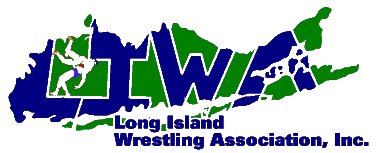
Long
Island Wrestling Association
|
|
|
|
Optimal Recovery for Wrestlers: After Weigh-In & During Tournaments
By Janet Walberg-Rankin, Ph.D., FACSM Professor of Human Nutrition, Foods, and Exercise, Virginia Poly University Craig Horswill, Ph.D., FACSM, Principal Scientist, Gatorade Sports Science Institute
* Disturbing mood and impairing ability to think and focus mentally. * Reducing blood sugar and disrupting certain hormones— ( these changes reduce energy and may lead to overtraining.) * Decreasing blood volume and raising body temperature, both of which promote fatigue. * Decreasing endurance, particularly in practice and late in competitive matches. * In extreme circumstances, causing kidney failure and even death.
Recovery Diet The goals for the recovery period after weigh-in are to restore blood glucose and muscle carbohydrate levels and to replenish body water as much as possible. These goals can best be achieved nutritionally by focusing on:
Fluid consumption—to restore blood volume * Beverage volume—The goal is to consume 150% of the weight lost by dehydration. When there is only a short period of time for drinking (e.g., only a few hours), it is essential that the beverage contains sodium and other electrolytes to help the body rehydrate quickly. * Schedule—Wrestlers should begin by consuming the maximum volume of fluid they can tolerate and then drinking additional amounts every 15 minutes. * Flavor—Flavored drinks can increase the desire to continue drinking. * Temperature—Cool drinks taste better and encourage drinking, but if a wrestler experiences chills, beverages should be maintained at room temperature.
Electrolyte intake—to maintain thirst and restore blood volume * Water alone is inadequate for complete rehydration. Consumption of plain water will reduce thirst and cause more fluid to be lost as urine. * Use carbohydrate-electrolyte sports drinks, especially those with extra sodium, and add salty foods to the diet: Although high-sodium beverages can be unpalatable, some new sports drinks have been developed that overcome this problem. Salty foods that are quickly digested should be consumed during the recovery period.
Carbohydrates—to provide energy for muscle and brain function * Emphasize easily-digested carbohydrate-rich foods such as pretzels and sports bars and, especially, carbohydrate-rich liquids that empty rapidly from the stomach to provide the energy need for training and competition.
Precautions: * For the snacks eaten immediately following the weigh-in and during tournament competition, minimize fullness by avoiding high-fiber or high-fat foods that are emptied slowly from the stomach, and do not drink carbonated beverages that contribute to bloating. * Stop food and fluid consumption about 30 min before the match so the stomach has a chance to empty.
Example: A wrestler loses 1 kg (2.2 lbs) by dehydrating the day before a match. Following weigh-in, the wrestler should consume: * 1.5 L (~51 oz) of high-electrolyte beverage (e.g., Gatorade Endurance Hydration Formula or traditional sports drink with added ½ tsp salt): Drink 30 oz (900 ml) to start and 7 oz (210 ml) every 15 minutes through the first hour. Plus * One of the following (or equivalent): o 1 or 2 sports bars or fig bars o 3 oz (90 g) pretzels o 1 slice of bread with thin peanut butter or slice of cheese o 8 oz (240 ml) chocolate milk or yogurt o 1 can liquid meal replacement (e.g., Gatorade Nutrition Shake) Copyright © 2002 Gatorade Sports Science Institute - All rights reserved
|